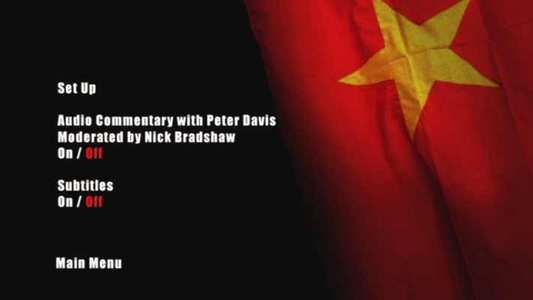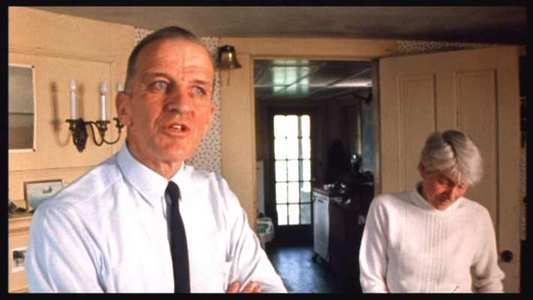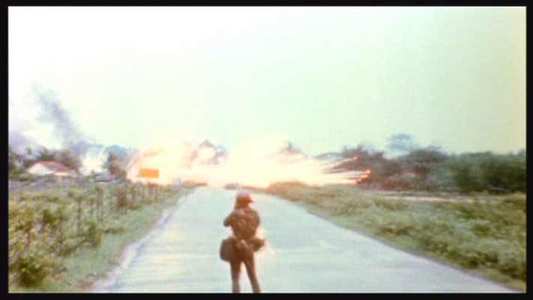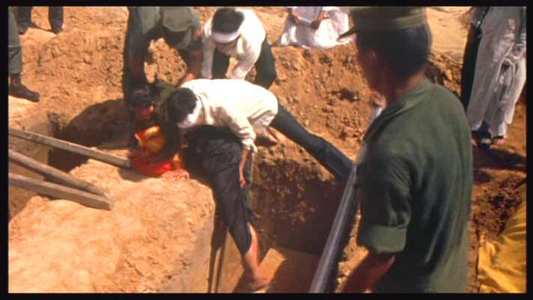Review of Hearts & Minds
Introduction
The Vietnam War was a troubled time in US history and the impact continues to resonate across its culture. At the time the leadership of the US seemed to be taking an ultra right wing stance in that the Vietnam War was necessary for national security and that any protest against it was deemed unpatriotic. It would seem that in the 21st Century that we have learned nothing from the lessons of the recent past.
Hearts And Minds is an award winning documentary about the Vietnam War that is like no other. Davies` objective was simply to fill nearly two hours with what he called `dead air`; `dead air` is the time spent on news footage where a particular image is focussed on by the camera at the start of a news piece before then cutting back to a perfectly manicured and eloquent correspondent. Davies` view was that the presence of a correspondent or commentary took the viewer away from the situation and made them feel safe. He wanted just `dead air` in order to tell his story.
Davies travelled to Vietnam and across the US where he filmed over 200 hours of footage. That footage, along with archive material, was whittled down to a near two hour documentary. With absolutely no narration, bar the sometime present voice of Davies during interview segments, the footage is seamlessly edited to present the Vietnam War from both sides of the argument. There is no commentary included to influence the viewer to a given viewpoint, the footage just speaks for itself and leaves you to make up your own mind.
Hearts And Minds controversially won the 1975 Oscar for Best Documentary and is released on DVD thirty years after its initial release.

Video
A combination of filmed footage by Davies and cinematographer Richard Pearce, archive newsreel footage and also various clips from Hollywood war films. Some of the footage is a little damaged, but none distractingly so. The footage shot by Davies and Pearce is clear and sharp enough for a documentary film and also contains very deep and striking colours.

Audio
A Dolby Digital 2.0 Stereo soundtrack that is more than adequate for this film. Subtitles included for the main feature but not for the commentary, which is a shame.

Features
Commentary - seems to be almost an interview of Peter Davies by Nick Bradshaw from Time Out. The latter only saw this film for the first time upon its re-release.
Essay by Peter Davies - written in the colour booklet included with the DVD. Written in October 2005, this brief piece explains the contemporary revelance of his film, as he sees it, and what his initial motivations for his film were.
Interview - a recent interview with Davies, approx. 20 minutes long, that is quite interesting but suffers from poor sound quality.

Conclusion
Whilst Hearts And Minds was a controversial piece of documentary film in 1975, today it can be viewed as a piece of history and presents us with an examination of US politics and foreign policy. Uncannily, and almost prescient in nature, this documentary also allows us comparision between the politics of the Vietnam-era and the post-9/11 era. Michael Moore was apparently heavily influenced by this documentary, but he could learn some valuable lessons from it too. Davies is not the star of the show and doesn`t try to distract the viewer with sarcastic overtones or a moralising message. The footage is the star here and it tell its own story. Viewers are left to make up their own minds.
That this is a documentary with an anti-war message is clear, but protagonists from just about every side are included to tell it as they see it and the footage is not skewed in favour of any one side. The film is sometime edited in such a way as to almost ridicule the words of a particular person, the most notable being General William Westmoreland, but the viewer is free to dismiss or agree with anything presented here. Westmoreland states that to the Oriental life is cheap, words which are then followed with footage of a young Vietnamese child weeping uncontrollably at the funeral of his father and followed by what seems to be his mother so drenched in grief that she attempts to climb into the grave as dirt is poured into it. The words seem so hollow and cheap and prove beyond all doubt that those at a higher level are nearly always ignorant of the reality of their words and actions.
As with most good documentaries, there is a tendency to focus on one or two participants in order to give the viewer someone to identify with. Outside the politicians and career generals, Davies focuses on two aviators whose experiences of the war and attitudes couldn`t be more different.
Lt George Coker was a pilot who was shot down and spent from 1967 to 1973 in captivity. We see him being welcomed back to his hometown in the midst of a huge parade and quickly see that despite his unbroken patriotism that he is a bit out of sorts with the world around him. Coker believes that his patriotism is what got him through his worst hours, and you couldn`t really argue with that, but his belief is now completely ingrained and has been in a bubble for the six years of his captivity. The world changed whilst he was away, but he comes back completely unchanged in his views. It`s a little unsettling.
Randy Floyd was a bomber pilot who is now out of the Air Force and grown a beard of hippy-ish proportions. He is a man deeply affected by his experiences, in retrospect more than anything though. He talks of just doing a job and using technology to achieve his mission. He talks about maybe seeing the houses before he dropped his bombs but not hearing the people screaming as they were blown out of existence. Then the moment arrives. He talks about the fact that he never dropped napalm, but he dropped things that were just as bad. He says he doesn`t know how he would feel if someone dropped napalm on his own children, and then it`s as if someone just flicked a switch and he gets an unwelcome mental image. He stops in his tracks and tears flow, on screen and off. A powerful moment and one where the impact of war on the individual become much more clear to both Floyd and me.
The era that Davies filmed in was very much a pro-Government era. The word of the President was sacrosanct and trusted by the population at large. Any kind of dissent against the actions of the US administration was treat with contempt by both the officials and the white collar workers who supported them. There was no inward questioning of whether they were right and opposition was ruthlessly crushed or smeared, even when those who questioned were the returning soldiers from a war that successive US administrations wanted, but just wanted to forget after it was all over. The end of the film is a perfect example of this, showing a typical US town parade with soldiers, police, etc. Lining the side streets are a ragged bunch of Vietnam Vets who are protesting that they would rather have jobs than parades. Normal `joes` are seen lobbing insults their way or giving the finger to people that they would be cheering if only they put on their best uniforms and preached about how great their country was.
They don`t make history like this any more, see it as soon as you can…
Your Opinions and Comments
Be the first to post a comment!